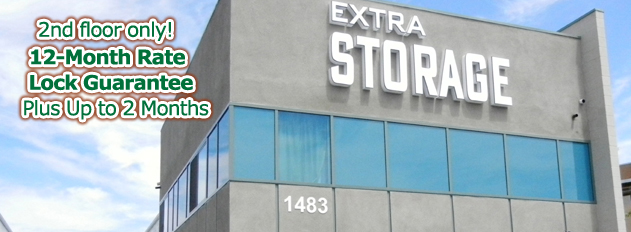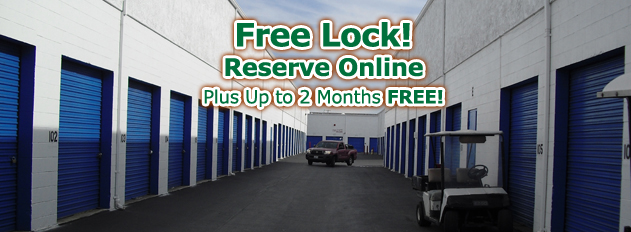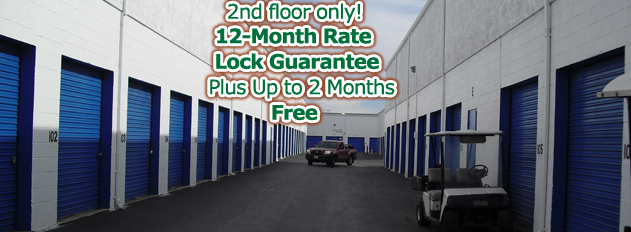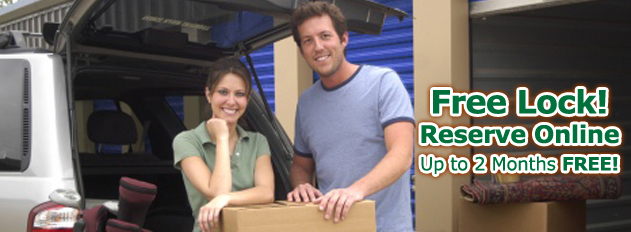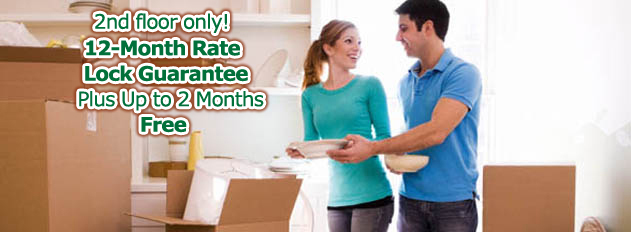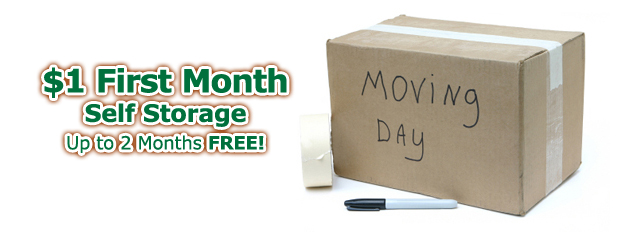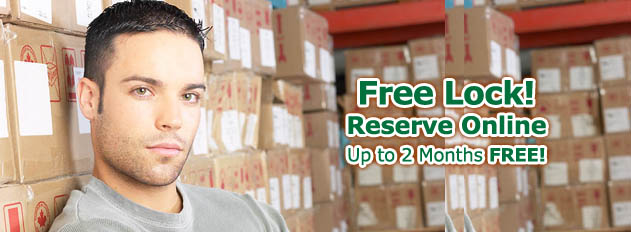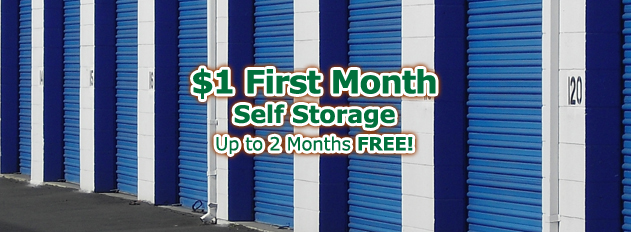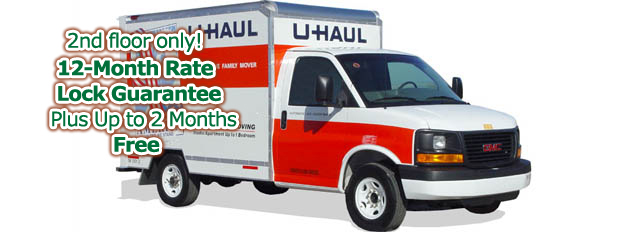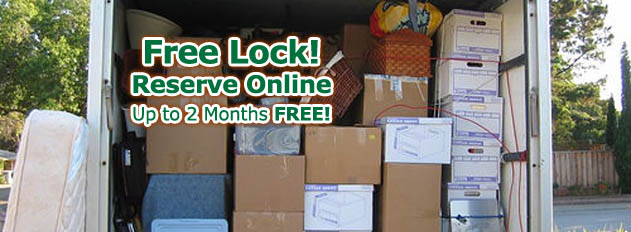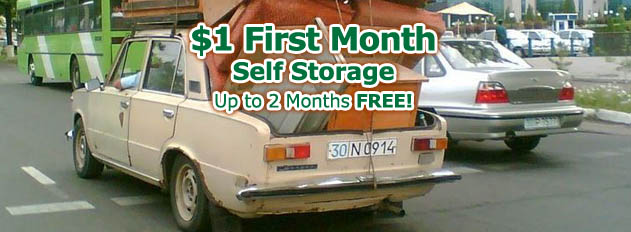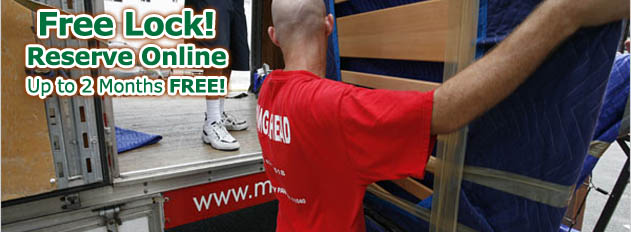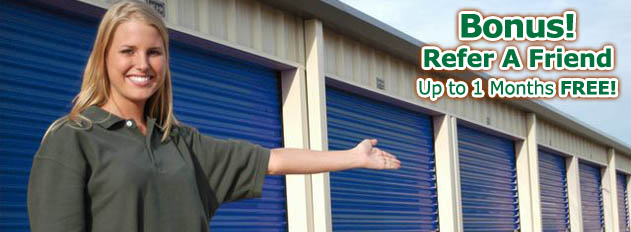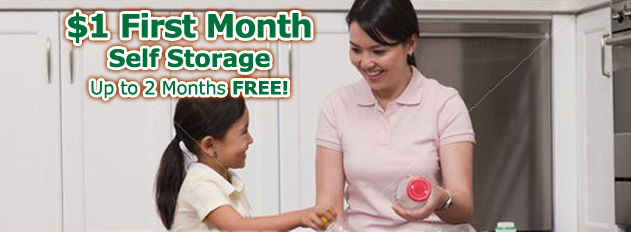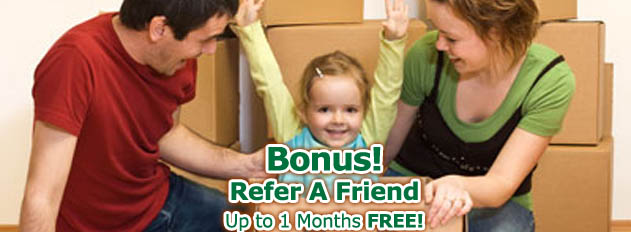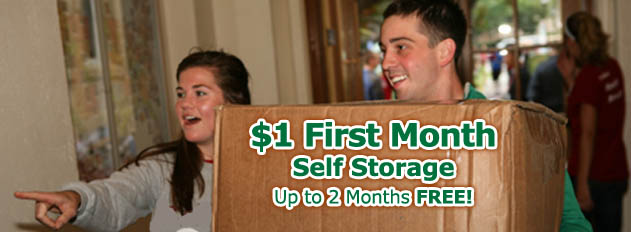Experience Our Friendly & Knowledgeable Services
Frequently Asked Questions!

FAQs
Extra Storage wants you to know how storage works so that you can have
a great self-storage experience. Here are the answers to some frequently
asked questions.
How do I choose
the right size and get started?
How far in advance can I make a reservation?
Can I rent on the telephone?
What do I need to provide when I rent?
When can I access my storage unit?
Can I drive onto the facility or do I need a code?
What do I do if I lose my key or access code?
Does Extra Storage provide
locks?
Can I buy boxes and other packing materials from Extra
Storage?
What is the difference between an indoor and outdoor
drive up unit?
What is a roll up door?
Do you have moving aids available?
Are moving trucks available?
After I rent, can my spouse, kids or friends have
access too?
Do you offer vehicle storage?
What does an on-site manager mean?
Do I need to give you notice when I move out?
What should or should not be stored in a self storage
unit?
Do you require me to have insurance on my stored
goods?
What security options should I look for in a self
storage facility?
Payment FAQs
What are the payment terms?
AutoPay
Pay by debit and/or credit card
Pay by mail
Pay in person
Pay online
Frequently Asked Questions
How do I
choose the right size and get started?
Sizes range from 5x5, or 25 square feet, to 10x30, or 300 square feet
and 9' high (all dimensions are approximate). Choosing the right size
is easy with the use of our size guide . To determine the sizes available,
click here. Reserve on line or contact one of our helpful Extra Storage
Facility Managers at (619) 427-2122 or check online www.ChulaVistaStorage.com
How far in advance can I make a reservation?
At Extra Storage you can reserve your unit on line or by calling us.
Reservations can be made on the day before moving in on unit sizes that
are available.
Can I rent on the telephone?
We can reserve on line or on the telephone. Completing the rental process
in person at the facility is required before move in.
What do I need to provide when I rent?
We will need two different addresses in the United States (one is an
alternate emergency contact), a copy of your license or government issued
photo ID, and a telephone number to reach you with.
When can I access my storage unit?
Extra Storage is open 7 days a week. The gate access hours are the
hours that you have access to your unit. Gate Access is every day 6 AM
to 6:40 PM. The office hours are the hours that the Facility Manager is
available to assist you with your storage needs and/or moving supplies.
The office is open Monday through Saturday 9 a.m. 6 p.m. and Sunday
10 a.m. 5 p.m.
Can I drive onto the facility or do I need a
code?
Extra Storage has an electronic gate system which can only be opened
by a security code that is assigned to each individual tenant. The code
monitors who enters and exits the facility. The office is open Monday through
Saturday 9 a.m. to 5:45 p.m. and Sunday 10 a.m. to 4:45 p.m.
What do I do if I lose my key or access code?
Call or visit your Extra Storage Facility Manager during office hours
for assistance.
Does Extra Storage provide
locks?
New sealed Disk Locks are available at our low purchase cost directly
from Extra Storage. Extra Storage requires Disk type locks for the maximum
protection of your stored goods. Whether you purchase a new Disk lock from
Extra Storage or another vendor, It is your lock and your key. Extra Storage
does not keep a key to your storage unit.
Can I buy boxes and other packing materials from Extra
Storage?
Yes. Extra Storage offers a variety of boxes, tape, protective wrap,
furniture covers and packing materials. For your convenience Extra Storage
is open 7 days per week. You do not need to be a storage customer to buy
supplies.
What is the difference between an indoor and outdoor
drive up unit?
An indoor unit is within the property and requires you to go inside
to access your unit. An outdoor or drive up unit has a roll up door and
is generally located on the first floor and can be accessed directly by
driving up to the unit which provides the ability to load directly into
the unit.
What is a roll up door?
Roll-up doors provide the largest opening to a storage unit and are
accessed by sliding a latch and rolling the door upward, similar to the
motion of a garage door.
Do you have moving aids available?
Yes, Extra Storage has complementary moving aids. If you need a cart,
please let anyone of our Extra Storage Staff know and they will be happy
to assist you.
Are moving trucks available?
Extra Storage can refer you to moving truck companies that offer special
discounts for our Extra Storage Customers. Check out our website other
tab for links to local companies or contact our facility staff for more
details.
After I rent, can my spouse, kids or friends have
access too?
When you rent from Extra Storage you can allow access for the other
people that you specify on your Rental Agreement (or restrict access only
to yourself). You have the choice to give your security access and key to
your storage unit.
Do you offer vehicle storage?
Yes, Extra Storage has vehicle storage parking spaces for rent, indoor
only.
What does an on-site manager mean?
An on site storage manager means that one of more employees, usually
the on site managers stay in an apartment that is on site at the facility.
Do I need to give you notice when I move out?
Yes, five days notice is required. Remove your lock and let the office
staff know when you have completely vacated your unit so that you will not
incur unnecessary charges.
What should or should not be stored in a self storage
unit?
Self-storage is an excellent option for storing many different types
of items from your home and/or business. Think of your storage unit as a
garage or supply room.
When planning what to store in your unit, whether for business or personal
purposes, consider that all storage facilities have restrictions on what
they will allow you to store on their premises. This is for the protection
of not just you and your belongings, but the facility staff and other customers
and their goods. You will be required to sign a lease indicating that you
understand and agree to adhere to the rules and restrictions for what items
are allowable. As a general rule, any item or material that is considered
intrinsically dangerous will not be allowed.
In preparation for renting a storage unit, make out a preliminary list
of the items you wish to store. Call ahead to Extra Storage to review what
you will be storing to ensure that you will be in full compliance with the
list of allowable items. Full disclosure of what you will be storing is
required. This will prevent any related inconvenience upon arriving.
Combustible, Flammable, Hazardous or Toxic Materials Considered intrinsically
dangerous, these include but are not limited to; gasoline, compressed gas,
propane tanks, kerosene, lamp and motor oil, acid, grease, corrosives, fertilizer,
paint, cleaners, chemicals, narcotics, or hazardous, toxic or biological
waste. Asbestos or products containing asbestos are not allowed. You also
cannot store fireworks, explosives, weapons or ammunition.
Tires & Vehicles Storing vehicles is generally acceptable, as long as
they are registered, insured and in operational condition. Extra Storage
does not allow more than four tires in your self-storage unit because of
the cost to dispose of them.
Medical/Pharmaceutical Supplies & Equipment Sales representatives may
find a self-storage unit a convenient place to store and manage supplies
and samples. It is a useful way to keep your products organized and accessible
without using up your office space or filling your trunk. While most supplies
are acceptable, anything that contains radioactive materials cannot legally
be stored.
Construction Equipment Construction workers find it convenient to stop
by their storage unit on the way to the job site and pick up any needed
equipment or materials. However, please check with the self-storage facility
before planning to store any construction equipment/tools. One tool - Bolt
Cutter is prohibited within the Extra Storage facility.
Perishable Food and Animal Products Any canned foods can be stored
in a storage unit. However, perishable and boxed foods are not allowed as
they attract rodents and pests.
Other Prohibited Items Appliances and/or other electrical items such
as refrigerators, freezers, generators, space heaters are strictly prohibited
and may not be plugged in or used within a storage unit. People are not
allowed to sleep in or live in any storage unit. Animals or plants, alive
or dead and any stolen items are strictly prohibited. Refer to paragraph
Combustible, Flammable, Hazardous or Toxic Materials for other prohibited
materials.
Do you require me to have insurance on my stored
goods?
Yes, you are responsible for the items that you are storing at Extra
Storage and insurance for your belongings is an option.
You may think that successful self-storage means your extra stuff is
out of sight, out of mind. But it is just as easy to overlook insuring your
prized possessions when they are stored remotely. In most cases, your homeowner's
or renter's insurance policy will offer little or no coverage for the
contents of a storage unit.
Self-storage facilities don't automatically offer coverage either. Although
your lease should include coverage of any damage that occurs to the storage
building itself, this protection does not extend to your business or personal
belongings. Additional insurance is offered at the time of rental for a
minimal monthly fee. This small investment translates into some notable
benefits:
Low cost / low deductible“ You may be able to save quite a bit on the
cost of insuring your items by going with a self-storage facility policy.
For example, at Extra Storage we provide you with a Deans & Homer Insurance
Brochure. They offer several levels of insurance coverage for your belongings
for affordable monthly rates. Their insurance covers damage to your belongings
in the event of a variety of accidental circumstances, including fire, water
damage, and theft. The deductible is only $100, which is significantly less
than that of a homeowner's insurance policy.
"Separate deductible“ Claims are filed directly through Deans
& Homer Insurance Company, rather than your own insurance company. Therefore,
these claims will not affect the amount of your monthly homeowner's
or renters insurance premium, nor cause your personal or business policy
to be cancelled.
In-transit coverage - Insurance policies offered through most storage
facilities cover any items that are damaged in transit -- up to a 50-mile
radius. This is coverage that is most likely not offered through your homeowner's
or renter's insurance policy.
Supplemental coverage - If you are a business owner, you may already
have insurance that covers equipment and other items you will be storing
in a self-storage unit. However, you may wish to consider investing in the
insurance offered by the storage facility, as it provides good supplemental
coverage for your items.
Most items commonly stored are covered under self-storage insurance
policies, one common exception is vehicles. Most policies require stored
vehicles to be covered by an auto insurance policy. If storing a vehicle,
you will need to provide proof of this coverage when you sign your storage
rental lease.
Whether you are planning to store your personal belongings or items
for your business, make sure to calculate how much you estimate your items
are worth. That way, you can purchase the appropriate amount of insurance
to covered your belongings.
What security options should I look for in a
self storage facility?
Security measures vary according to geographic location, facility policy
and cost. Below are some items to keep in mind when looking for storage
that works for you.
Facility Hours
For security purposes, self-storage properties have set hours during
which renters can enter the property and access their storage unit. The
property's security system will prevent you from entering the property
other than during these hours. If your schedule is different than the hours
the storage facility is open, storage access may become difficult to you.
Be sure to ask what times and days you will be allowed to access your space.
Locks & Security Systems
Although no security system is foolproof, there are security features
that the facility should have to make sure both you and your stored property
are as safe as possible:
Choose a facility that is completely fenced and well lit.
Choose a facility that has a keypad entry system at the main gate.
During the rental process you will be given a unique access code, which
you will use to gain entry to the facilities main gate keypad system. In
addition to using the code, you will be responsible for supplying or purchasing
a Disk lock for your individual storage unit. Remember that you will have
the only key to your individual lock.
Choose a facility that has at least one video surveillance camera at
the main gate. This backs up the keypad entry system with a chronological
visual history of who has entered and exited the facility.
Manager on Site
Some storage facilities are managed by a staff member or owner who
lives on site. Although having an on site managers provides an additional
level of security, it does not mean that someone is monitoring the facility
security at all times.
Deliveries
If you are a business owner, and will may need to have deliveries accepted
at your unit. If so, there are several additional questions you should ask
before renting:
1. Can the storage facility accept deliveries on your behalf?
2. Are deliveries limited to specific times and days?
3. If deliveries are accepted, can they be delivered right to your
storage unit?
4. If they can be delivered right to your storage unit, what is the
maximum size of the delivery trucks that can enter the property and drive
up to your unit?
5. Does the property manager need to be present or can the delivery
be made without the manager there?
What are the payment terms?
Extra Storage provides month-to-month rentals and monthly payment terms.
For your convenience we have a variety of payment options to choose from.
AutoPay
Enroll in person at Extra Storage and we will automatically debit your
bank account or charge your MasterCard®, Visa®, Discover®, or American Express®
credit card for your monthly storage rent.
Pay by debit and/or credit
card
We accept debit and major credit cards payments including MasterCard®,
Visa®, Discover®, or American Express®.
Pay by mail
Mail your payment to Extra Storage. Be sure to include your storage
unit number on your check or money order.
Pay in person
Extra Storage is open 7 days and accepts payment by cash, check, debit
or credit card.
Pay online
For your convenience, you can pay online using your debit/credit card,
savings/checking account 24/7.
Learn More About Extra Storage!!!
Extra Storage units are designed with the security of your belongings, your budget and convenience in mind. For all your personal and commercial storage needs, please call the Extra Storage professional team at 619-427-2122 or email us lease@extrastorage.net


